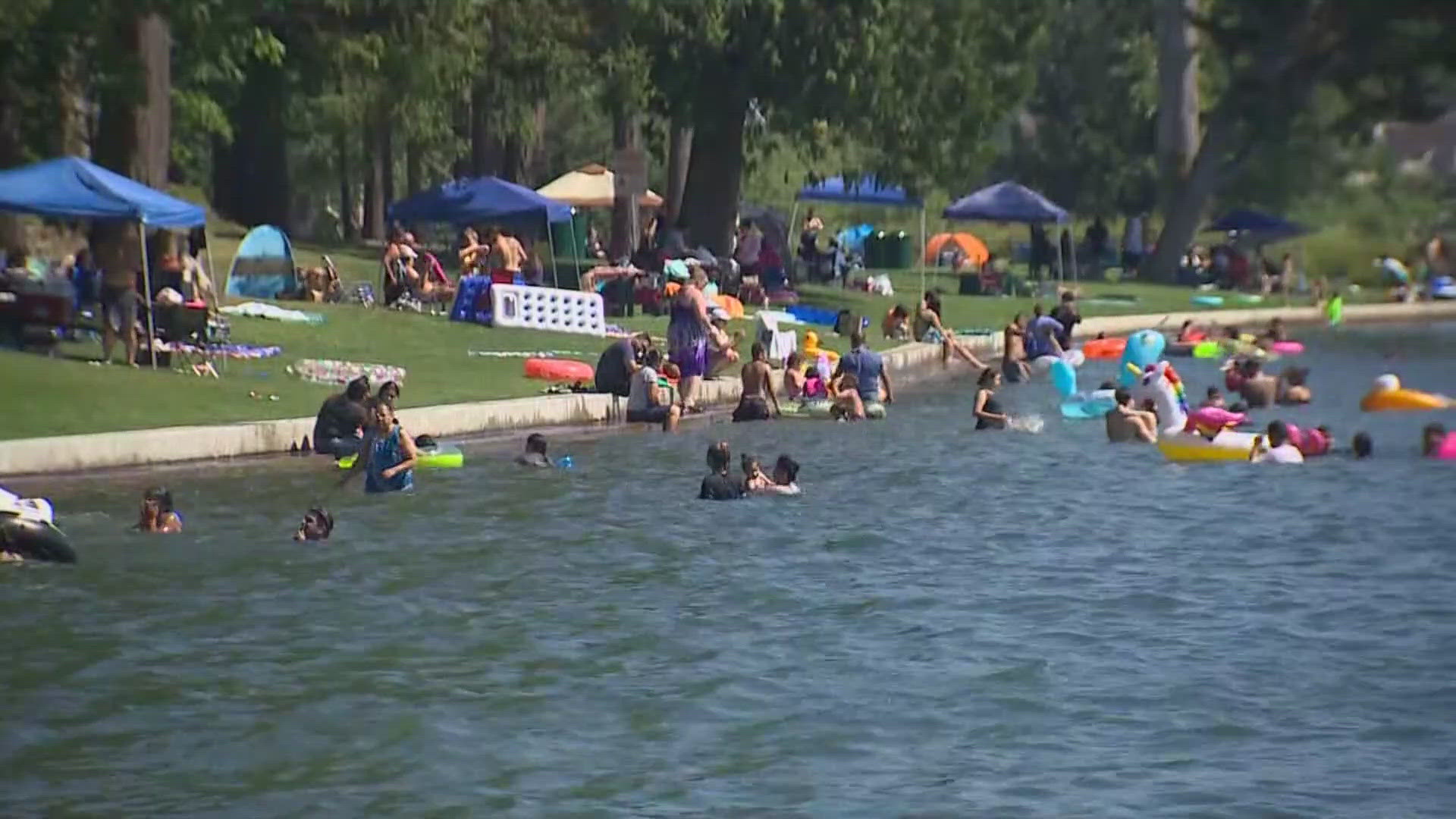SEATTLE — People around Puget Sound hear the warnings all the time, this time of year: Avoid swimming in the lakes and rivers if you can, as the water is still very cold despite warmer temperatures.
The risk is getting "cold water shock," when the body dangerously reacts to being in water that is 50 degrees and colder.
Dr. Stephen Morris, an emergency medicine physician based at UW Medicine Montlake and Harborview Medical Center, has seen such cases countless times.
"People don't realize that getting into very cold water like we have here in the northwest, can kill you within a minute," Morris said.
Morris said one of the first dangers is the involuntary gasp for air and the risk of water entering the lungs during this reaction.
"This time of year in particular, we see people that are going into the water thinking that they just want to swim and cool off and have a nice time and then end up in a really terrifying and life-threatening situation," Morris said.
While there's a recent trend of people taking "polar plunges" with claims it helps with exercise-related muscle damage and boosts your immune system, Morris doesn't recommend it for everyone.
"If you're doing a polar bear plunge and you have one of your friends on each side of you, it's a little bit safer," Morris said.
The shock factor of falling into very cold water accidentally or submerging into deeper waters for a swim can make a difference.
"It's very, very different from somebody jumping into a cold lake and not knowing what they're getting into," Morris said.
Cold water shock can result from being in water 50 degrees or colder, how it is right now, from mountain snow runoff.
"Just to paraphrase one of the writers from the American Heart Association, you're not a polar bear," Morris said.
For humans, the shock can cause involuntary gasps for air, hyperventilation, even cardiac arrest and other heart problems.
"It increases your heart rate drastically, it increases your blood pressure drastically and if you have an underlying health problem, that can be enough to cause a stroke, cause a heart attack, it's caused heart attacks actually in very young people," Morris said.
And then panic can set in.
"So you have an altered mental status, so you're in this dangerous, life-threatening situation, and all of a sudden you're making poor decisions, or you're not able to comprehend what's going on," Morris said.
Morris added if you happen to safely pull someone out of the water who's experiencing cold shock, get them to safety and warm them up gently, right away.
"Skin-to-skin contact is a really safe way to re-warm someone," Morris said.
He said to call 9-1-1 immediately, as they may still need medical attention, even if they might appear to be okay.
What happens to the body when it's in cold water shock?: HealthLink
KING 5 talks with a western Washington ER doctor who's treated cold water shock cases.

